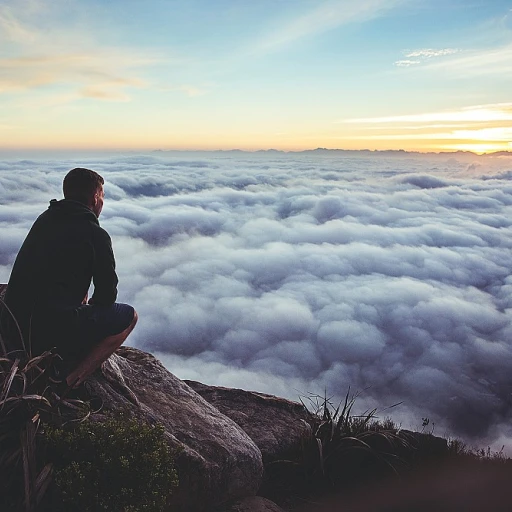
Understanding crm for recruiting in human resources
What Makes CRM Essential in Modern Recruitment?
Recruitment has evolved far beyond posting jobs and waiting for candidates to apply. Today, recruiters and staffing agencies need robust tools to manage relationships, streamline the hiring process, and keep up with the competition. Customer Relationship Management (CRM) software, once mainly used in sales, has become a cornerstone in recruiting. It helps recruiters organize candidate data, track interactions, and nurture talent pipelines—all in real time.
Unlike traditional applicant tracking systems (ATS), a recruitment CRM focuses on building and maintaining strong candidate relationships. This approach is especially valuable for talent acquisition teams and recruitment agencies that want to engage passive candidates, manage large talent pools, and personalize communication throughout the recruitment process.
How CRM Software Supports the Recruiting Journey
- Centralized candidate data: All candidate information, from resumes to interview notes, is stored in one place. This makes it easy for recruiters to access and update profiles as candidates move through the hiring process.
- Automated communication: CRM tools can automate follow-ups, reminders, and personalized messages, saving recruiters time and ensuring no candidate falls through the cracks.
- Collaboration: Teams can work together more efficiently, sharing notes and feedback on candidates in real time. This is crucial for staffing agencies and organizations with multiple recruiters involved in the same job search.
- Integration with social media: Modern recruiting CRM platforms often connect with social media channels, making it easier to source candidates and promote job openings where talent is most active.
For those looking to optimize their executive hiring strategy, leveraging CRM recruitment tools alongside platforms like LinkedIn can be a game-changer. Discover more about optimizing your LinkedIn strategy for executive hiring to enhance your recruitment process.
As the recruitment landscape becomes more competitive, having a user-friendly, feature-rich CRM is no longer a luxury—it’s a necessity for recruiters aiming to deliver the best candidate experience and fill roles efficiently. In the next sections, we’ll explore the key features of recruiting CRM platforms and how artificial intelligence is transforming relationship management in talent acquisition.
Key features of crm for recruiting platforms
Core Capabilities That Drive Modern Recruitment CRM Platforms
Recruitment CRM software has become a cornerstone for staffing agencies, recruitment agencies, and talent acquisition teams. These platforms are designed to streamline the hiring process, making it easier to manage candidates, jobs, and relationships in real time. Understanding the essential features of recruiting CRM tools helps organizations choose the best solution for their needs and improve the overall recruitment process.
- Centralized Candidate Database: A robust CRM for recruiting stores all candidate data in one place, allowing recruiters to track every interaction and update candidate profiles efficiently. This feature is vital for maintaining a strong candidate relationship and ensuring no talent is overlooked.
- Applicant Tracking System (ATS) Integration: Many recruitment CRM platforms offer built-in ATS or seamless integration with existing applicant tracking systems. This enables recruiters to manage job postings, applications, and candidate progress through the hiring pipeline without switching between tools.
- Automated Communication Tools: Automated emails, SMS, and scheduling tools help recruiters stay in touch with candidates and clients. These features reduce manual effort and ensure timely follow-ups, enhancing the candidate experience and improving recruiter productivity.
- Customizable Workflows: Every staffing agency or recruiting team has unique processes. Modern CRM recruitment software allows users to tailor workflows, stages, and notifications to fit their specific hiring process, making the system more user friendly and efficient.
- Advanced Search and Filtering: Powerful search capabilities let recruiters quickly find the best candidates based on skills, experience, location, and other criteria. This saves time and helps fill jobs faster with the right talent.
- Reporting and Analytics: Real time dashboards and customizable reports provide insights into key metrics like time to hire, source effectiveness, and candidate engagement. Data-driven decisions help optimize recruiting strategies and demonstrate value to stakeholders.
- Social Media Integration: Connecting with social media platforms allows recruiters to source candidates, promote jobs, and build employer brand presence directly from the CRM software.
- Collaboration Tools: Features like shared notes, task assignments, and team messaging support collaboration among recruiters, ensuring everyone stays aligned throughout the recruitment process.
- Compliance and Data Security: With increasing regulations around candidate data, recruitment CRM systems offer features to manage consent, track data usage, and ensure compliance with privacy laws.
For organizations looking to improve executive hiring or streamline communication, it's worth exploring how to build an effective executive hiring process communication plan for additional strategies that complement CRM features.
Choosing the right recruiting CRM means evaluating these features in the context of your staffing needs, team size, and long-term talent acquisition goals. The best platforms offer a blend of automation, user friendly design, and powerful data tools to support recruiters and candidates alike.
How artificial intelligence enhances crm for recruiting
Transforming Candidate Relationship Management with AI
Artificial intelligence is changing how recruiters and staffing agencies manage candidate relationships and recruitment processes. By integrating AI into CRM software, recruitment teams can automate repetitive tasks, analyze large volumes of data, and improve the overall user experience for both recruiters and candidates.
Smarter Candidate Sourcing and Screening
AI-powered recruiting CRM platforms can scan job boards, social media, and internal databases in real time to identify the best talent for open positions. These tools use advanced algorithms to match candidate profiles with job requirements, reducing manual effort and speeding up the hiring process. For example, AI-driven CV parsing technology helps recruiters quickly extract relevant information from resumes, making it easier to shortlist candidates who fit the role.
Personalized Communication and Engagement
Recruitment CRM systems enhanced with AI can automate personalized messages to candidates at every stage of the recruitment process. Whether it’s scheduling interviews, sending job updates, or providing feedback, AI ensures timely and relevant communication. This not only improves candidate experience but also helps recruiters maintain strong candidate relationships, which is essential for successful talent acquisition.
Data-Driven Decision Making
AI enables recruiting CRM software to analyze historical hiring data, track key metrics, and provide actionable insights. Recruiters can identify patterns in candidate behavior, optimize sourcing strategies, and make informed decisions about which channels deliver the best results. This data-driven approach helps recruitment agencies and staffing firms allocate resources more efficiently and improve their overall hiring outcomes.
- Automated candidate screening and ranking
- Real-time analytics and reporting
- Enhanced applicant tracking and workflow management
- Integration with ATS CRM and other recruiting software tools
By leveraging AI in recruitment CRM platforms, organizations can streamline their hiring process, reduce time-to-hire, and deliver a more user-friendly experience for both recruiters and candidates. As AI technology continues to evolve, its role in recruitment and relationship management will only become more significant.
Benefits for recruiters and candidates
Improved Experience for Recruiters and Candidates
AI-powered CRM software brings a new level of efficiency and personalization to the recruitment process. For recruiters, these tools streamline workflows, automate repetitive tasks, and provide real time insights into candidate pipelines. This means less time spent on manual data entry and more time focused on building strong candidate relationships and making informed hiring decisions.
- Faster Hiring: AI-driven features in recruiting CRM platforms help recruiters quickly identify top talent, reducing time-to-hire and improving the overall hiring process.
- Enhanced Candidate Engagement: Automated communication tools ensure candidates receive timely updates, making the process more transparent and user friendly.
- Data-Driven Decisions: By analyzing data from multiple sources, including social media and applicant tracking systems (ATS), recruiters can make better decisions about which candidates are the best fit for each job.
- Seamless Integration: Modern CRM recruitment software often integrates with ATS CRM and other recruiting software, allowing staffing agencies and recruitment agencies to manage the entire talent acquisition process from one platform.
Benefits for Candidates
Candidates also benefit from AI-powered recruiting CRM systems. The software ensures that their applications are tracked efficiently and that they receive relevant job recommendations. Automated scheduling and communication features help candidates stay informed throughout the recruitment process, reducing uncertainty and improving their overall experience.
- Personalized Job Matches: AI analyzes candidate data to suggest roles that align with their skills and experience, increasing the likelihood of a successful placement.
- Transparent Process: Real time updates keep candidates informed about their application status, fostering trust and engagement.
- Reduced Bias: AI-powered tools can help minimize unconscious bias in screening, promoting fairer hiring practices.
Value for Recruitment Teams and Agencies
For staffing agencies and talent acquisition teams, AI-powered CRM software offers scalability and flexibility. Features like bulk communication, automated follow-ups, and advanced analytics enable teams to manage large volumes of candidates efficiently. This not only improves productivity but also helps agencies deliver the best possible service to both clients and candidates.
By leveraging the right recruiting CRM tools, organizations can transform their recruitment process, making it more efficient, data-driven, and candidate-centric. Whether you are a small team looking for a free solution or a large agency seeking advanced features, the right CRM software can make a significant difference in your hiring outcomes.
Challenges and ethical considerations
Addressing Bias and Fairness in AI-Driven Recruitment
Integrating artificial intelligence into recruitment CRM software brings efficiency, but it also raises concerns about bias and fairness. AI models learn from historical data, which may reflect existing biases in hiring practices. This can unintentionally disadvantage certain groups of candidates, affecting diversity and inclusion goals. To mitigate this, recruiters and staffing agencies should regularly audit their recruiting software and applicant tracking systems (ATS) for biased outcomes. Transparent algorithms and clear documentation help ensure that the recruitment process remains fair and equitable for all talent pools.
Data Privacy and Security Concerns
AI-powered CRM platforms process large volumes of sensitive candidate data, including resumes, social media profiles, and interview notes. Protecting this information is crucial for maintaining trust with candidates and complying with data protection regulations. Recruitment agencies and hiring teams must choose CRM software with robust security features, such as encryption and user access controls. Regular security assessments and compliance checks are essential to safeguard candidate relationship data throughout the hiring process.
Transparency and Explainability of AI Decisions
Recruiters and candidates increasingly expect transparency in how AI-driven decisions are made during the staffing and talent acquisition process. When a recruiting CRM or ATS CRM recommends or rejects candidates, it is important that the reasoning behind these decisions is clear and understandable. User-friendly dashboards and explainable AI tools can help recruiters communicate decisions to candidates, building trust and improving the overall candidate experience.
Balancing Automation with Human Judgment
While AI and automation streamline many aspects of the recruitment process, human oversight remains essential. Automated tools can quickly screen and rank candidates, but recruiters should review final selections to ensure the best fit for each job. This balance helps prevent over-reliance on technology and maintains the human touch in relationship management, which is vital for successful hiring outcomes.
Continuous Monitoring and Ethical Best Practices
- Regularly review and update AI models to reflect current hiring needs and reduce bias.
- Train recruiters and staffing professionals on ethical use of recruiting CRM tools.
- Engage with candidates transparently about how their data is used in the recruitment process.
- Choose CRM recruitment solutions that prioritize ethical standards and compliance.
By proactively addressing these challenges, organizations can harness the full potential of AI-powered recruitment CRM systems while upholding ethical standards and building trust with both recruiters and candidates.
Best practices for implementing crm for recruiting with AI
Steps to Successfully Integrate AI into Recruitment CRM
Implementing AI-powered CRM software in the recruitment process can be transformative, but it requires a thoughtful approach. Here are some practical steps to ensure a smooth transition and maximize the benefits for recruiters, staffing agencies, and candidates alike.
- Assess Your Needs: Start by identifying the pain points in your current recruiting process. Are you struggling with candidate relationship management, data overload, or slow hiring times? Understanding these challenges will help you choose the best CRM software features for your organization.
- Choose User-Friendly Tools: Look for recruitment CRM platforms that are intuitive and easy for your team to adopt. User-friendly interfaces reduce training time and help recruiters focus on talent acquisition rather than navigating complex software.
- Integrate with Existing Systems: Ensure your new AI-powered CRM can connect with your applicant tracking system (ATS), job boards, and social media platforms. This integration streamlines the recruiting process and centralizes candidate data for real-time insights.
- Prioritize Data Quality: AI tools rely on accurate, up-to-date information. Regularly clean and update your candidate database to improve the effectiveness of AI-driven recommendations and automate tasks like candidate sourcing and communication.
- Train Your Team: Provide ongoing training for recruiters and hiring managers. Understanding how to use AI features—such as automated candidate matching or predictive analytics—empowers your team to make the most of the technology.
- Monitor Performance: Track key metrics like time-to-hire, candidate engagement, and recruiter productivity. Use these insights to refine your processes and ensure the CRM software is delivering value throughout the staffing and hiring journey.
- Stay Compliant and Ethical: As discussed earlier, be mindful of data privacy and bias. Regularly review your AI tools for compliance with regulations and ethical standards, especially when handling sensitive candidate information.
Tips for Maximizing Value from AI-Powered Recruiting CRM
- Leverage automation to handle repetitive tasks, freeing up recruiters to focus on building genuine candidate relationships.
- Utilize real-time analytics to make informed decisions about talent pipelines and job postings.
- Encourage feedback from recruiters and candidates to continuously improve the recruitment process and CRM features.
- Explore free trials or demos to evaluate which recruiting CRM best fits your agency or company’s needs before committing.
By following these best practices, recruitment agencies and staffing professionals can harness the full potential of AI-powered CRM systems to enhance their hiring process, improve candidate experience, and stay competitive in the evolving world of talent acquisition.













